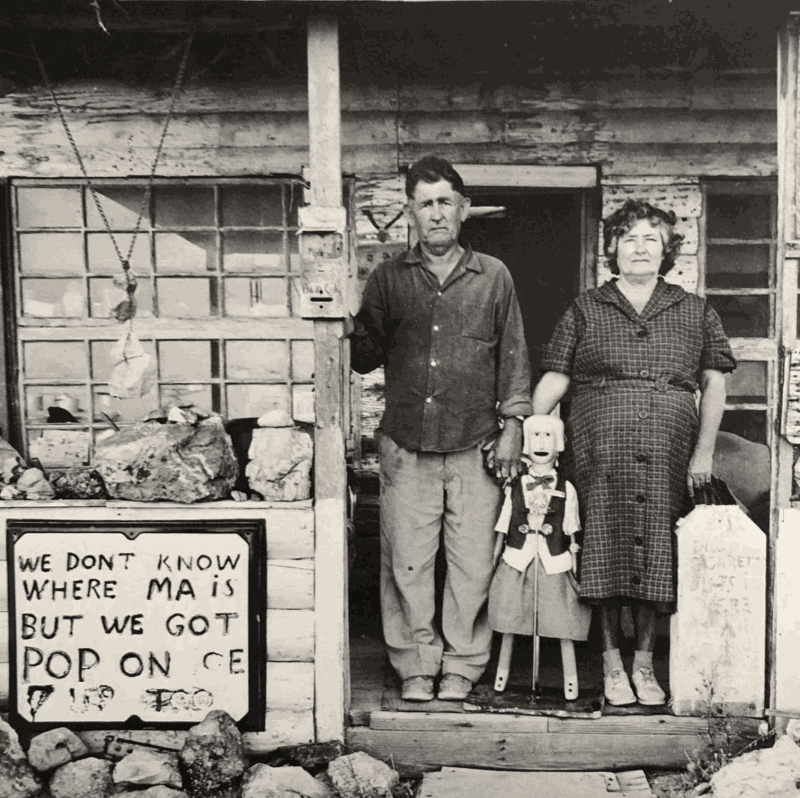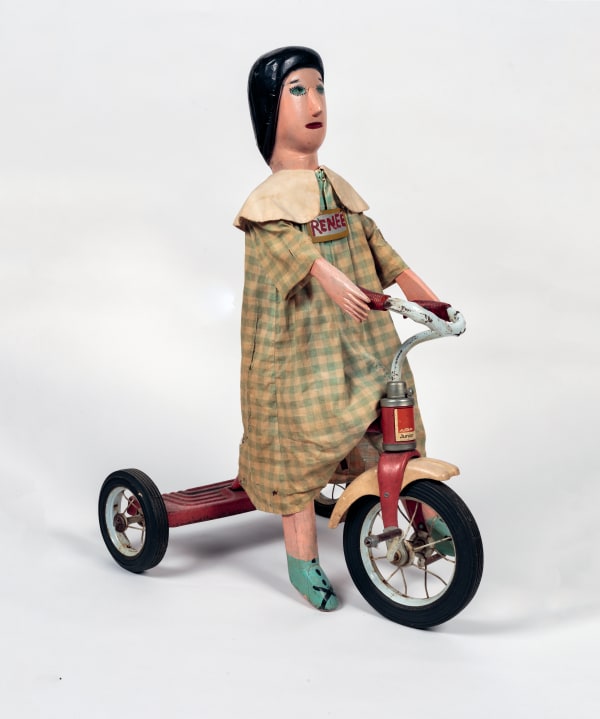Calvin and Ruby Black American, 1903/1913-1972/1980
Calvin (1903-1972) and Ruby Black (1913-1980)
From a young age Calvin Black had to take on the role of raising his siblings, and although he received very little schooling in his native state of Tennessee, he taught himself to read and write. While traveling for work in carnivals and circuses he met his wife Ruby. Shortly after they married in 1953, they moved to a plot of land off of Ghost Town Road in the Mojave Desert, where initially they set up a rock shop that they eventually transformed into a now legendary art environment named Possum Trot. This make-believe town was inhabited by more than eighty near life-size dolls that Calvin carved and painted (in redwood and pine with enamel house paint) and Ruby dressed in costumes sewn from old clothing. The site was also home of the Bird Cage Theater, where Black’s “Fantasy Doll Show” took place. In this spectacle, for a 25-cent admission charge, visitors could see the artist’s muses brought to life through his ingenious automaton mechanization, accompanied by shrill, high-pitched recordings of Calvin performing dialogues and songs in his own voice. The dolls often represented the particular traits, names, and personalities of women Calvin had known. Visitors were encouraged to tip them individually, and Calvin used the tip money to buy that individual doll accessories and trinkets.
The story of the Blacks coming to own a piece of arid land and conjure this spirited milieu out of sheer imaginative will is the equivalent of a foundational myth in the field of self-taught art. For two decades, travelers passing through on Highway 15 would see welcoming whirligigs and handwritten signs: “Open,” “Powered by mother nature,” “Unique carved dolls,” “Look but don’t touch,” “Doll Land,” “gowns by Ruby,” “Beautiful Dolls of the Dessert Waste Land.” But Possum Trot village was like a mirage that appeared as swiftly as it vanished. When Calvin died in 1972, Ruby continued to care for the village, but after her own death in 1980 the site fell into decay and was finally disassembled. The couple had no children or known relatives, but thankfully the Blacks remarkable creation was preserved in a short documentary film, Possum Trot (1977), by Allie Light and Irving Saraf, and through the dolls themselves, who now are in various private and museum collections, including the American Folk Art Museum (New York), the Milwaukee Art Museum, the Newark Museum (New Jersey), the New Museum (New York), the Smithsonian American Art Museum (Washington, D.C.), and the John Michael Kohler Arts Center (Sheboygan, Wisconsin).

